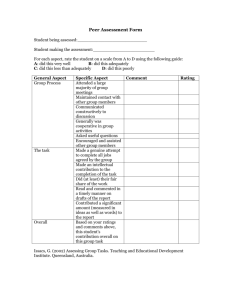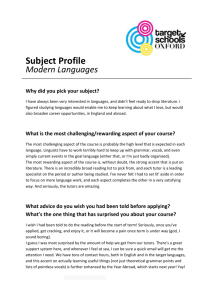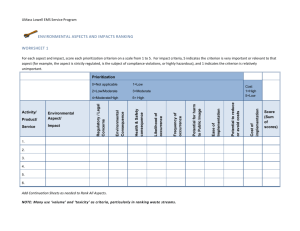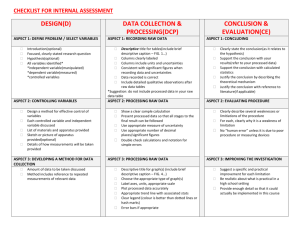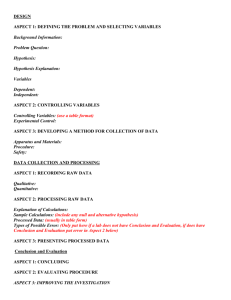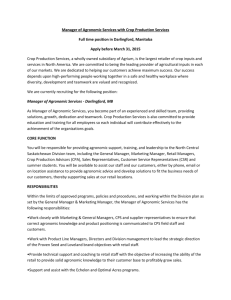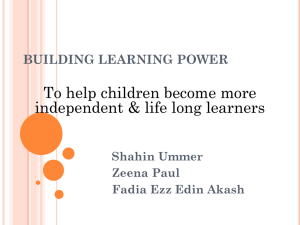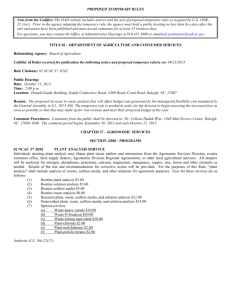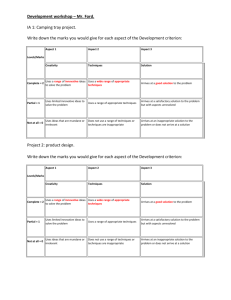- Mamud.com
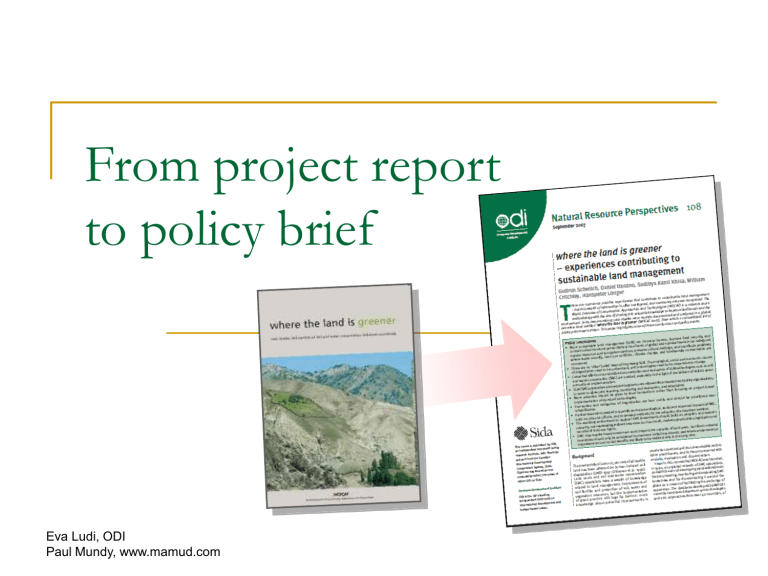
From project report to policy brief
Eva Ludi, ODI
Paul Mundy, www.mamud.com
Kottelmann, here is your report back. Why don’t you just summarize the most important items and send it to me as an SMS…
Cartoon: Dirk Meissner
You have written your report…
Now, how do you turn it into a policy brief?
An example
World Overview of Conservation Approaches and
Technologies (WOCAT)
Global network of Soil and Water Conservation (SWC) specialists
WOCAT’s mission is to support innovation and decision-making processes in sustainable land management by
analysing and synthesizing experiences developing and applying standardized tools for documenting, monitoring, evaluating, sharing and using knowledge
The basis
Database with
400 technologies
260 approaches
from over 40 countries
Book describing 42 case studies
364 pages!
The process
One of authors drafted a Natural Resource
Perspectives policy brief
First draft written from perspective of a project collaborator
Project achievements in foreground
Not the general messages
The draft
Example
“ WOCAT distinguishes between agronomic, vegetative, structural and management measures.”
“A useful distinction can be made among agronomic, vegetative, structural and management measures.”
Example
“ 55% of the technologies presented in the book are combinations of various agronomic, vegetative, structural and/or management measures.”
“More than half of the technologies presented by WOCAT (2007) are combinations of various agronomic, vegetative, structural and/or management measures.”
The policy brief
The policy brief
4 pages
3500 words
Don’t try to edit
Do not try to edit a
300-page report down to 1500 words!
Two problems
Hard to throw things away
What remains has no natural flow
Don’t try to edit
Instead
Take a step back
Look at the research through a telescope
Think of the big picture
Then write from scratch
Getting from here to there
What is the big picture ?
What problem did the project address?
What did the project try to find out?
What did it find out?
Who is your audience ?
Who is your policy audience?
What aspects are of interest to policymakers?
What do you want them to do differently?
What did the report say about policy ?
Many reports already have a section on policy
Start at the beginning
Write the lead
Work out the body structure
Problem – effects – causes – solution
Example 1 – example 2 – analysis – solution
Problem – intervention – results
Aspect 1 – aspect 2 – aspect 3 – analysis
Write the body
Put the supporting material together
Cases, boxes, tables, graphics, photos, more information…
Decide on your recommendations
Start at the end
Decide on your recommendations
Work out the body structure
Problem – effects – causes – solution
Example 1 – example 2 – analysis – solution
Problem – intervention – results
Aspect 1 – aspect 2 – aspect 3 – analysis
Write the body
Put the supporting material together
Cases, boxes, tables, graphics, photos, more information…
Write the lead
A policy brief should….
…be based on evidence but not focus on details
…generalize context-specific findings
…relate to the big picture
More information
WOCAT report
http://tinyurl.com/yhfrrht
Policy brief
http://tinyurl.com/ykyv7nz
